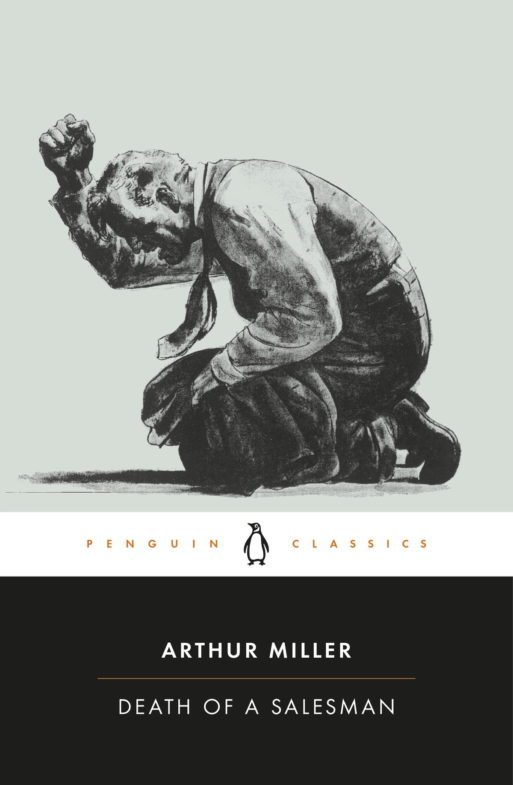 ***This post contains spoilers***
***This post contains spoilers***
Death of a Salesman, Arthur Miller’s most famous play, obviously has death in it; but I would argue that the most tragic part of the play is the failure of communication between the characters, particularly salesman Willy and his son Biff. However, Willy’s delusions about what his son intends to do coupled with the frustrations he has been experiencing lead him to kill himself, and thus the play comes to be about both of these tragedies. At the very end of the play, in a section appropriately titled “Requiem,” Biff and his family attend Willy’s funeral. A small speech by Linda, Willy’s wife, concludes the play, and though it isn’t my favorite passage, I think it says a lot about grief and the regret that comes with it:
LINDA: Forgive me, dear. I can’t cry. I don’t know what it is, I
can’t cry. I don’t understand it. Why did you ever do that? Help
me Willy, I can’t cry. It seems to me that you’re just on another
trip. I keep expecting you. Willy, dear, I can’t cry. Why did you
do it? I search and search and I search, and I can’t understand
it, Willy. I made the last payment on the house today. Today,
dear. And there’ll be nobody home. (A sob rises in her throat.)
We’re free and clear. (Sobbing more fully, released.) We’re free.
(Biff comes slowly toward her.) We’re free… We’re free… (Biff
lifts her to her feet and moves out up right with her in his arms.
Linda sobs quietly. Bernard and Charley come together and follow
them, followed by Happy. Only the music of the flute is left
on the darkening stage as over the house the hard towers of the
apartment buildings rise into sharp focus, and the curtain
falls.)
Linda’s refrain of “I can’t cry” reflects the shock that accompanies grief, especially when a death is so unexpected. Linda feels guilty for her tearless reaction (“Forgive me, dear”), but it is because she also feels lost and confused. On top of her astonishment, which manifests itself in her questions (“Why did you ever do that?” “Why did you do it?”), Linda can’t wrap her head around the fact that she will never see Willy again, which I think is something we all wrestle with after a loss. She muses, “It seems to me that you’re just on another trip. I keep expecting you.” As simple as these lines are, I find them to be highly realistic.
Also realistic is the moment that her husband’s death truly hits her: “I made the last payment on the house today. Today, dear. And there’ll be nobody home.” Once she realizes that she is going to be living in her house alone, it doesn’t matter that her house is paid off. This thought initiates her sobs, and what continues them is the fact that if Willy had just hung on a little bit longer, his financial worries (which were one of the main causes of his mental distress) would have disappeared. Only a few days after Willy’s death, Linda announces that she and her husband are “free”; their money troubles are over. She repeats the statement over and over because she thinks it will make her feel better, but it ends up making her feel worse. Linda is so broken up that Biff has to help her back into the house, her sadness echoed by the stage directions, which note that “Only the music of the flute is left on the darkening stage…” This portrayal of loss may be harsh and bleak, but it is a perfect offset to the characters’ indirectness in the rest of the play, and I think this is exactly what Arthur Miller intended.
Suggestions for Further Reading:
- “The ‘Pause’ of Shock” (SevenPonds)

 “Death of a Salesman” by Arthur Miller
“Death of a Salesman” by Arthur Miller



 Our Monthly Tip: Make an “In Case of Death” File to Ease Loved One’s Grief
Our Monthly Tip: Make an “In Case of Death” File to Ease Loved One’s Grief
 Passing of Beloved Comedian Births a New Comedy Festival
Passing of Beloved Comedian Births a New Comedy Festival















